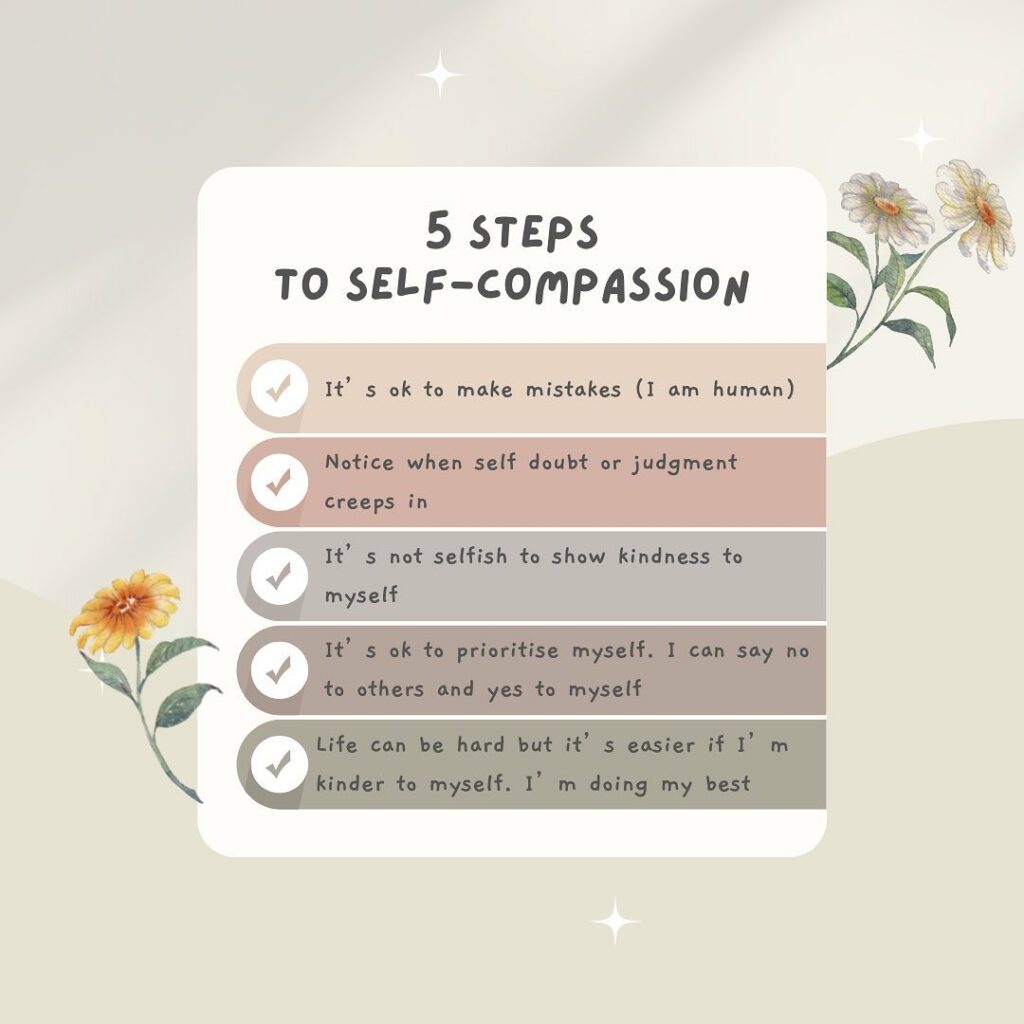It basically means treating yourself how you would a friend who is going through a tough time – even if your friend is at fault or has made a mistake resulting in their current situation.
Did you know research says people who are self-compassionate tend to feel happier, have greater life satisfaction and motivation, better relationships and physical health, have greater levels of resilience needed for life’s stressors and have less anxiety and depression?
When we mindfully observe our pain, we can acknowledge our suffering without blowing things out of proportion, allowing us to take a wiser and more objective perspective on ourselves and our lives.
Have you given it a try?
Here are a few of our favourite steps in self-compassion.
- It’s ok to make a mistake (I am human).
- Notice when self-doubt or judgement creeps in.
- It’s not selfish to show kindness to myself.
- It’s ok to prioritise myself. I can say no to others and yes to myself
- Life can be hard, but it’s easier if I’m kinder to myself – I’m doing my best.
You could start out by writing yourself a letter in a compassionate voice whenever you’re struggling or feel less than ideal. It might feel weird at first, but like all things worth doing – it gets easier with practice.

This article was originally published on our social pages – to ensure you don’t miss any of our latest updates – jump over to our Facebook or Instagram pages.
You might also like to read our article about Living Mindfully here>



